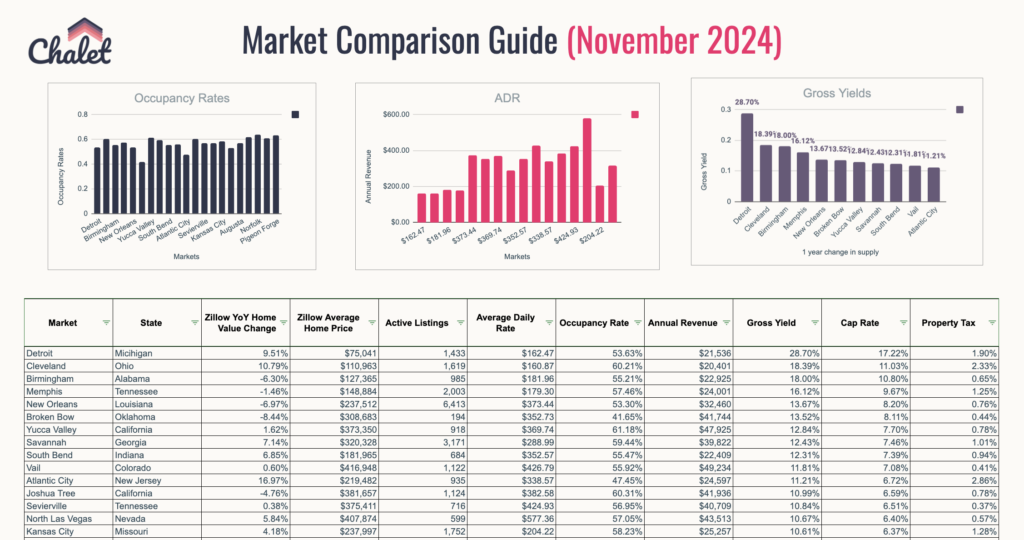Santa Rosa Beach, FL, located along the scenic Highway 30A in the Florida Panhandle, is a popular destination for travelers seeking beautiful beaches, vibrant local culture, and a laid-back atmosphere. This allure makes it an attractive spot for short-term rental investments, particularly through platforms like Airbnb. However, as with many desirable tourist destinations, understanding the local regulations governing short-term rentals is crucial for both investors and property owners.
Overview of Short-Term Rentals in Santa Rosa Beach
Short-term rentals, including those listed on Airbnb, have become an integral part of the hospitality landscape in Santa Rosa Beach. These rentals offer tourists a variety of lodging options, from luxurious beachfront homes to cozy cottages nestled in the heart of the community. However, to operate a short-term rental legally and successfully in Santa Rosa Beach, owners must navigate a set of local regulations designed to balance tourism benefits with community interests.
Regulatory Framework
Santa Rosa Beach falls under the jurisdiction of Walton County, which has implemented specific regulations to manage short-term rentals. Here are the key points every Airbnb host should be aware of:
1. Permitting and Licensing
Before listing a property on Airbnb, hosts must obtain the necessary permits and licenses. Walton County requires a Short-Term Rental Certificate for properties used for short-term rentals. This certificate ensures that the property complies with local zoning laws and safety standards.
Steps to Obtain a Short-Term Rental Certificate:
- Application: Submit an application to the Walton County Planning Department. This application must include details about the property, such as its location, size, and intended use.
- Inspection: The property must pass an inspection to ensure it meets health and safety standards, including proper fire exits, smoke detectors, and adequate sanitation facilities.
- Fees: Pay the required fees, which cover the cost of processing the application and conducting the inspection.
Top 200 Airbnb Rental Markets

Instantly compare top 200 short-term (Airbnb) rental markets in the US
2. Zoning Regulations
Walton County has specific zoning regulations that dictate where short-term rentals can operate. It’s essential to check the zoning designation of your property to ensure it is eligible for use as a short-term rental. Certain residential areas may have restrictions or prohibitions against operating short-term rentals to maintain the neighborhood’s residential character.
3. Occupancy Limits
Short-term rentals in Santa Rosa Beach are subject to occupancy limits based on the property’s size and configuration. These limits are designed to prevent overcrowding and ensure the safety and comfort of guests.
General Occupancy Guidelines:
- The maximum occupancy is typically two guests per bedroom, plus an additional two guests. For example, a three-bedroom property can accommodate up to eight guests.
4. Health and Safety Requirements
To protect guests, Walton County mandates that all short-term rentals adhere to specific health and safety standards. These include:
- Fire Safety: Properties must have functioning smoke detectors, fire extinguishers, and clearly marked fire exits.
- Sanitation: Clean and well-maintained sanitation facilities are mandatory. Regular pest control measures must be in place to prevent infestations.
- Building Codes: The property must comply with local building codes, which include structural integrity, electrical wiring, and plumbing standards.
Managing Your Airbnb Responsibly
Compliance with local regulations is just the first step in managing a successful short-term rental in Santa Rosa Beach. Here are additional tips to help you maximize your investment while being a responsible host:
1. Community Relations
Maintaining good relations with your neighbors is crucial. Respect local noise ordinances and ensure that your guests do the same. Provide clear guidelines to guests regarding noise levels, parking, and trash disposal to minimize disruptions to the community.
2. Guest Communication
Clear and consistent communication with your guests can prevent many common issues. Provide detailed check-in and check-out instructions, house rules, and emergency contact information. Consider using a property management service if you cannot be available to address guest needs promptly.
3. Property Maintenance
Regular maintenance is essential to keep your property in top condition and ensure the safety and satisfaction of your guests. Schedule routine inspections and address any repairs promptly. A well-maintained property not only attracts more guests but also reduces the risk of accidents and liabilities.
Resources for Short-Term Rental Hosts
For more detailed information and resources on managing short-term rentals in Santa Rosa Beach, consider the following:
- Walton County Planning Department: Walton County Planning – For information on permits, zoning, and inspections.
- Visit South Walton: Visit South Walton – A tourism resource that provides insights into local attractions and events, which can help market your rental property.
- Florida Vacation Rental Managers Association: FVRMA – An organization that offers support and resources for vacation rental owners across Florida.
Conclusion
Operating a short-term rental in Santa Rosa Beach, FL, can be a lucrative venture, provided you navigate the regulatory landscape effectively. By securing the necessary permits, adhering to zoning and safety regulations, and fostering positive community relations, you can ensure a smooth and profitable experience for both you and your guests. With its beautiful beaches and welcoming community, Santa Rosa Beach remains an ideal location for Airbnb investments.

